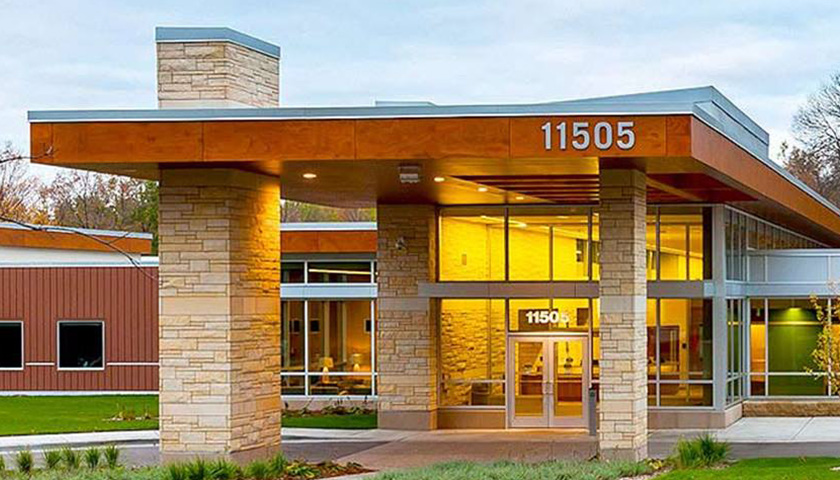by Liz Collin
A former counselor at Hazelden Betty Ford’s adolescent treatment center in Plymouth is speaking out about a controversial policy that allows young people to be housed according to their gender identity, not biological sex.
He told Alpha News it hasn’t gone well and believes it’s time people know the truth. Alpha News agreed to protect his identity for this interview as he continues his counseling career away from Hazelden.
After seven years in the corporate sector, he was relieved to change careers for a job he loved at a nationally-recognized organization.
“I was energized. I would come home and I was alive. I had worked in the corporate world for seven years prior and I made good money and that was fine, but I never really felt like I was doing something that I loved. Once I got in this field and started working with young people, I was engaged and I loved it,” he said.
“The brand is great and, selfishly, having that on your resume is a big deal, right? I mean you want to be successful in your career and so getting a job at a place like that, you have clout in the industry immediately. They’ve had a lot of success and done a lot of good work. They have treated a lot of people and they have a system that works when applied appropriately, in my opinion,” he added.
But he began to feel uncomfortable with Hazelden’s housing policies and felt like there was no opportunity for discussion. He said clients are always “placed where they want to be, not based on their biology but based on their identification.”
“I don’t agree with the policy. I don’t think it’s doing anybody a service, especially young people,” he said. “If I knew my son was in treatment for 90 days and the individual sleeping next to him was a 15-year-old girl, I would not be happy. I would argue that’s not going to help him.”
He said it’s a scenario he encountered three times in his nine months as an employee, treating 14- to 25-year-olds for drug and alcohol addictions.
“As a counselor, I have no say. We’re not really given an option or an opportunity to talk about it either. I guess for me it didn’t really feel safe to talk about it. That’s not necessarily said to you, but it’s just kind of the attitude in the environment. What I know from my experience is that it doesn’t typically end super well. I think there may be certain instances where it went fine, but for the most part it doesn’t go well at all,” he said.
He acknowledged that young people, especially addicts, struggle with their identity and gender but believes there needs to be more nuance in the discussion around placing minors of the opposite sex in the same treatment units.
“I believe that to be real. I also believe that just like every addict that comes to the table, everything that they’re presenting isn’t always true and accurate,” he said.
In his own experience, he said the policy caused distractions for some of his male clients and took away from the limited time he had with them.
“That’s what I think the biggest issue is. Clients are there to be treated for a disease that can kill them and what happens is now they’re distracted by something that is, rightly so, really distracting,” he explained.
“You have a biological woman come onto the unit and that’s distracting to a lot of clients, and they’ll voice that. I want to treat clients who are struggling with addiction. I don’t want to talk about these distractions. The time that we have with them is really limited and then we end up chasing behaviors. They are engaging in inappropriate conversations, inappropriate sexual activities, and then all of the sudden that’s what we’re focused on. What did you think was going to happen? This is what happens. If we’re treating this disease of addiction, I think we need to be a little more careful, especially with minors,” he continued.
Lack of transparency
Apart from the impact on clients, he said he was most bothered by the lack of transparency. Promotional materials on the treatment center’s website point to “gender-specific residential units” along with a video stating the same.
“It’s important for you to know that girls and guys are never going to live together or do any kind of treatment together,” the video says.
“They’re not necessarily lying. It’s gender specific, but they’re not being transparent about the fact that there will be instances where a biological female will live in a biological male unit, even if they are a minor. I think that needs to be known. I think that’s information that’s valuable to people who are paying for their kids to go there and also, frankly, for people who are giving money to fund treatment for people,” the former counselor said.
Openness and honesty are crucial to a successful recovery, but Hazelden isn’t living up to those standards, he said.
“If we’re trying to promote a culture of honesty and transparency and responsibility, if we’re going to do something like this, if we’re going to place clients with each other like that, just be transparent. I would have way less of an issue if that were the case. I would probably not choose to work in that environment, but I would be way more respectful of an environment that is transparent about the fact that they’re doing that,” he added.
He said in-patient treatment can cost tens of thousands of dollars and believes parents should know what they are getting.
Hazelden responds
In a statement to Alpha News, a Hazelden spokesperson said:
We appreciate and embrace the complexity of serving people with diverse gender identities. We do house people according to their gender identity unless they ask to discuss another option or there are other extenuating circumstances. We work to ensure everyone feels safe and comfortable. That means accommodating and negotiating the needs of all of our patients, with safety as our top priority. Certainly, there are challenges of all kinds to navigate in congregate living settings, but this is not an issue that has caused us significant problems.
The counselor we spoke to has since moved on from Hazelden because he “would rather work in an environment where people can disagree.”
“I think it makes people better. This is a field of study where things are still changing in general, then you throw in gender identification and that’s also really new in terms of how we are treating that and how does that impact residential care,” he said.
He said to make these “quick decisions” without doing anything to understand the impact is a disservice to everyone involved.
“So it’s doing a disservice to both parties. That’s where it’s hard. Everyone loses. It’s not bigoted to say this is distracting. It’s honest,” he said. “It just doesn’t go well when you mix them together, it doesn’t. In my experience, it did more harm than good. It created a lot of chaos and distracted people from getting care.”
– – –
Liz Collin is a contributor to AlphaNews.org. She has been a truth-teller for 20 years as a multi-Emmy-Award-winning reporter and anchor. Liz is a Worthington, Minnesota native who lives in the suburbs with her husband, son and loyal lab.
Photo “Hazelden Betty Ford Rehab Center” by Hazelden Betty Ford Foundation.





